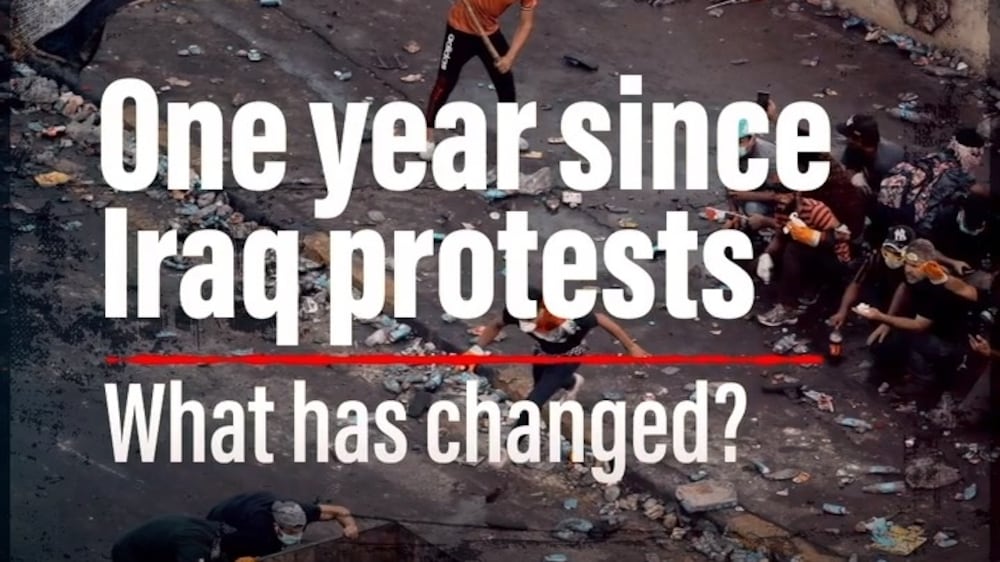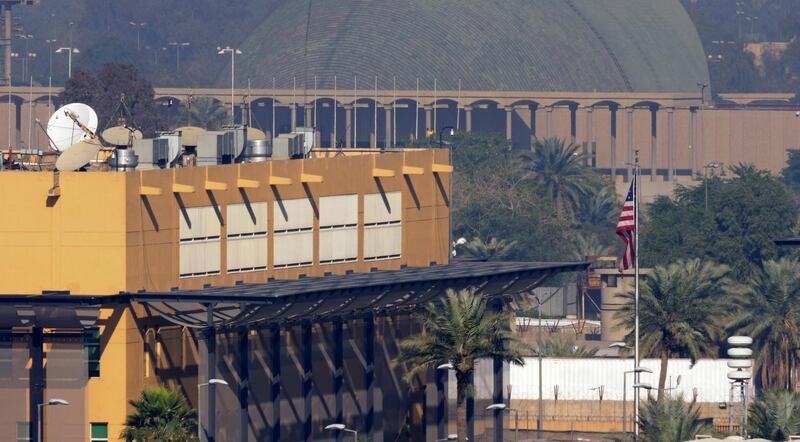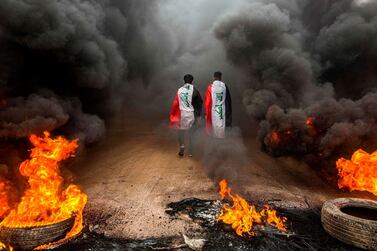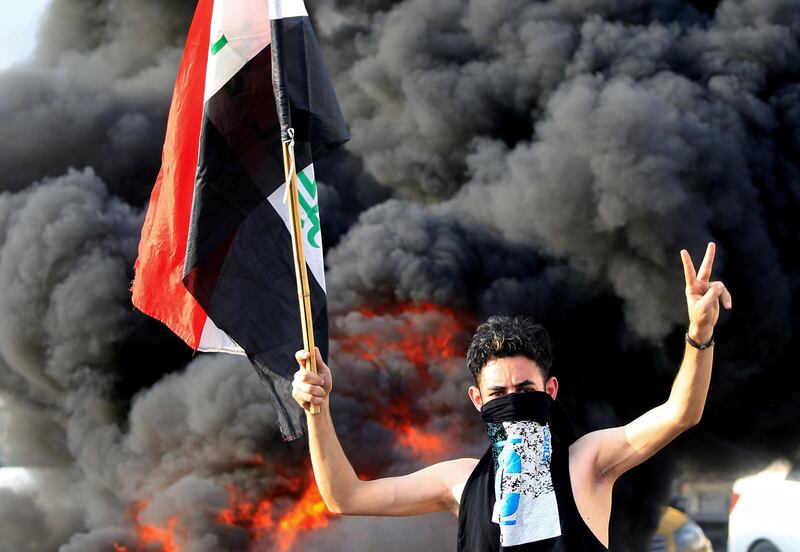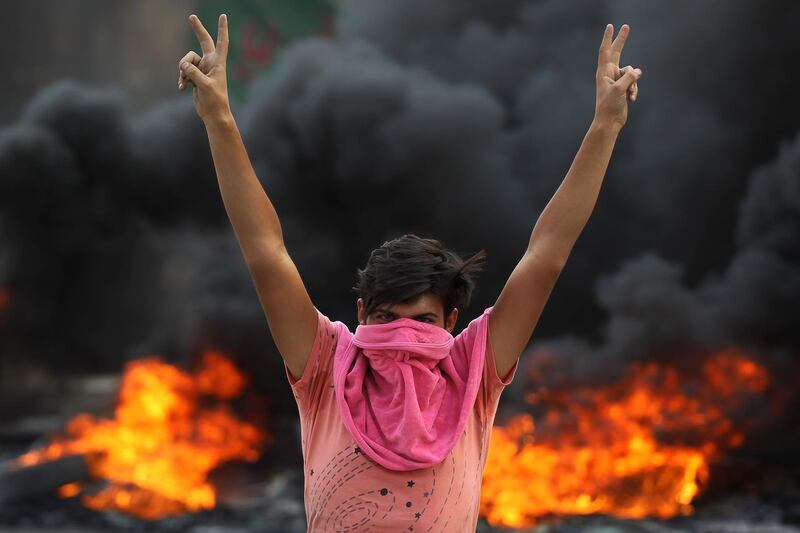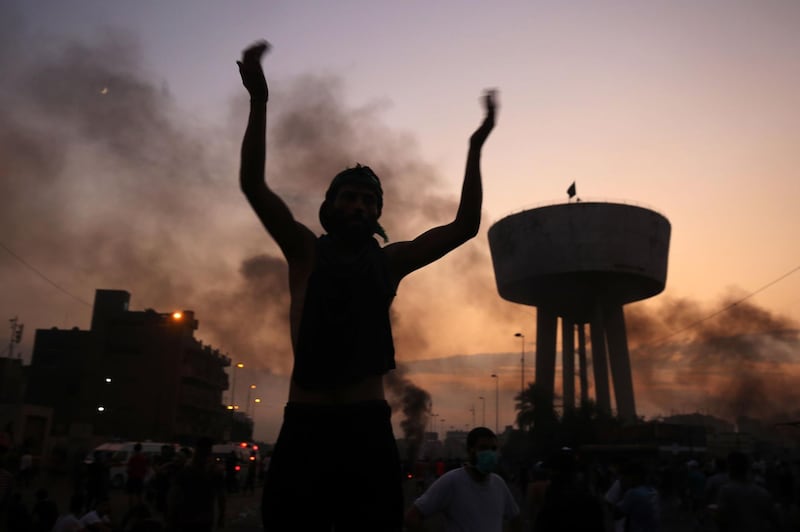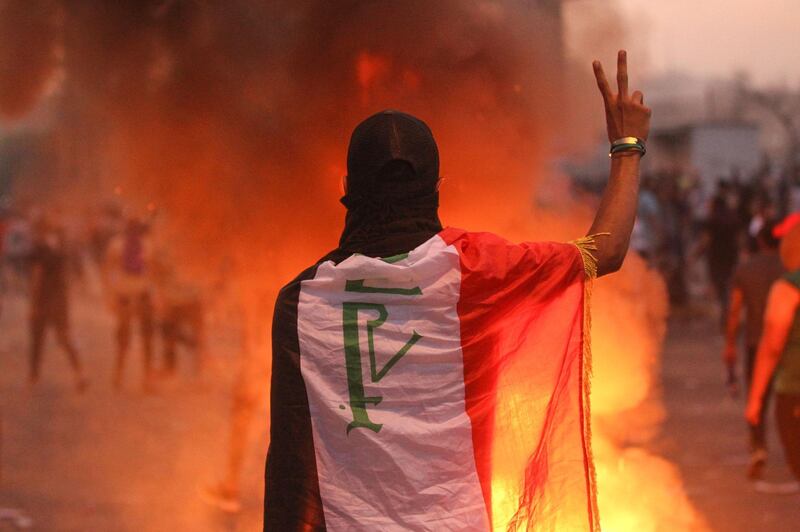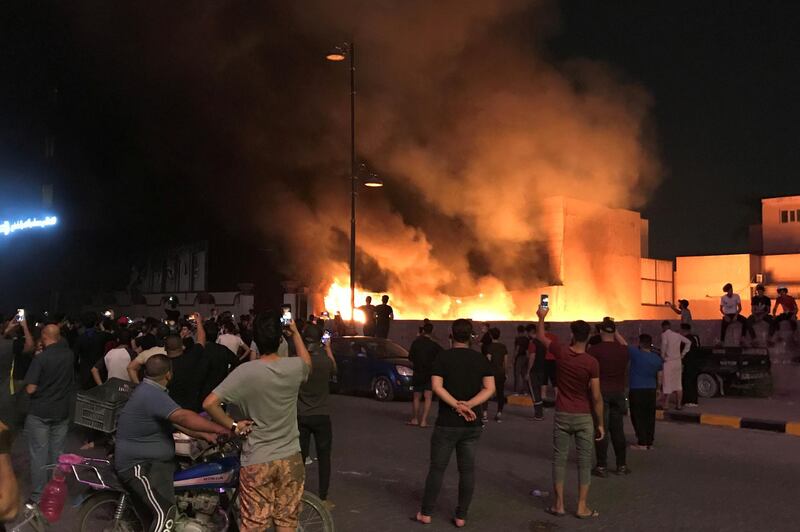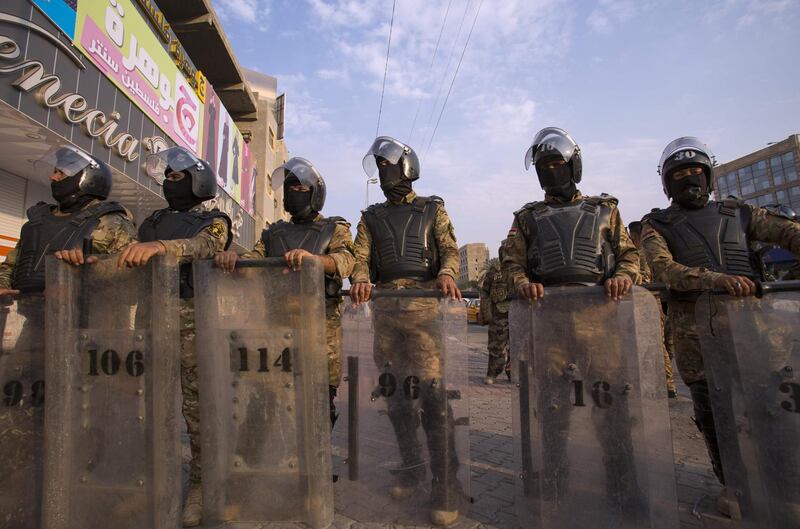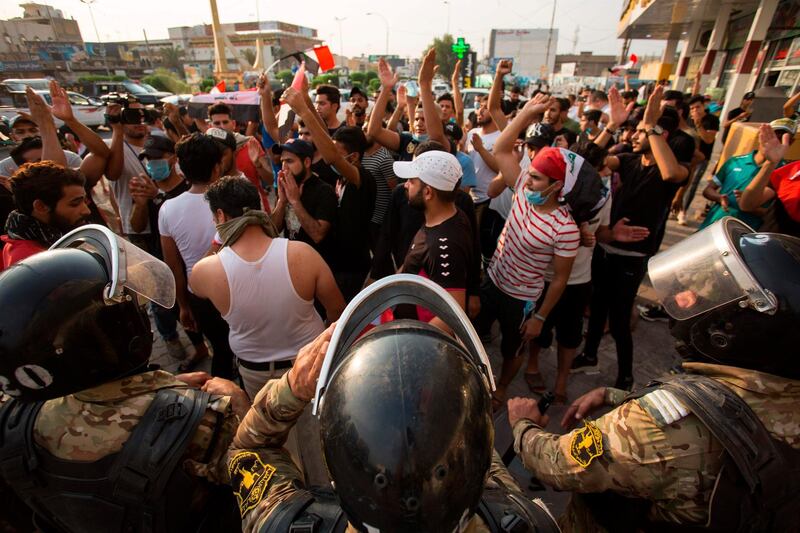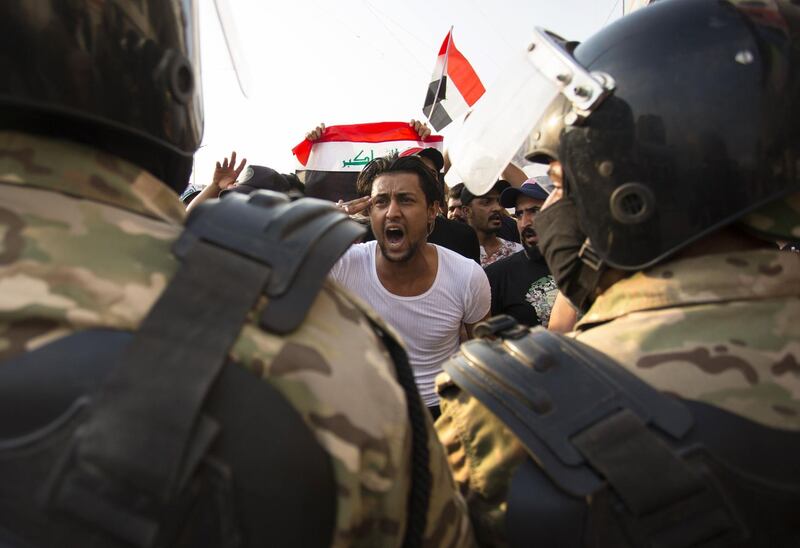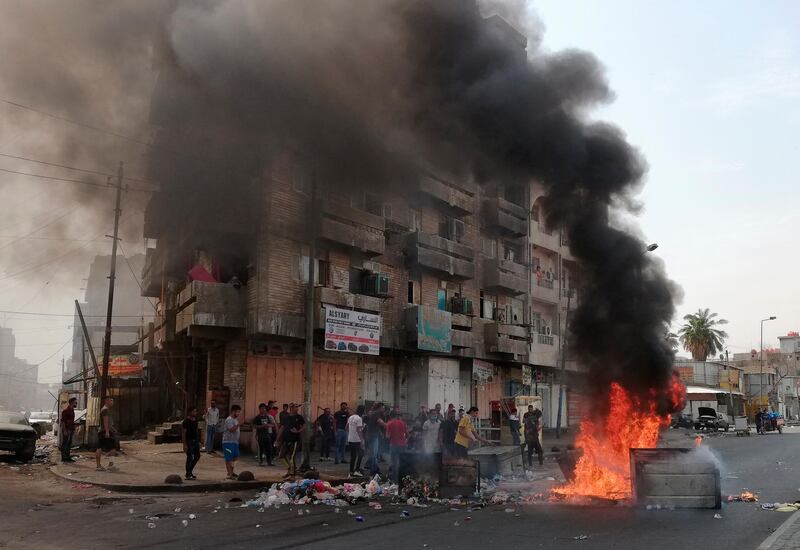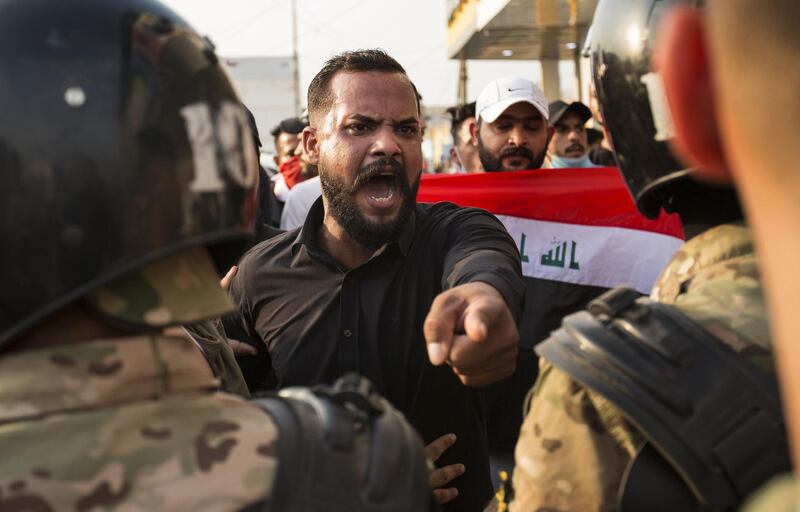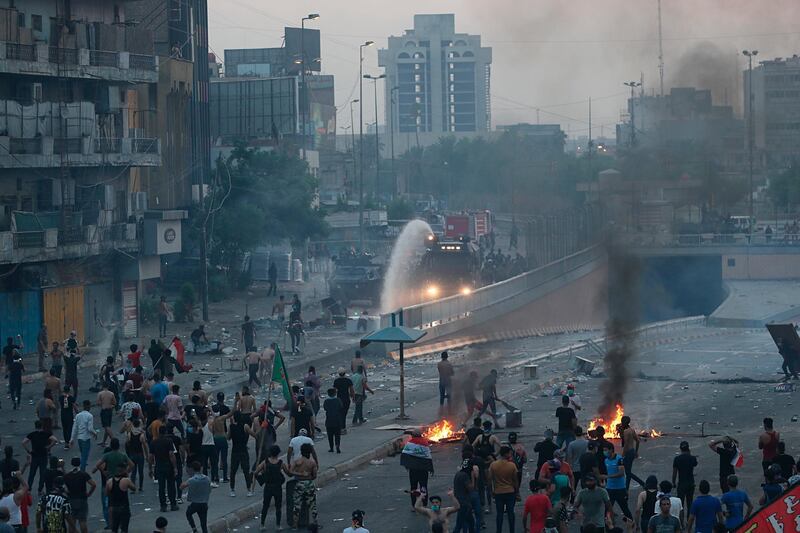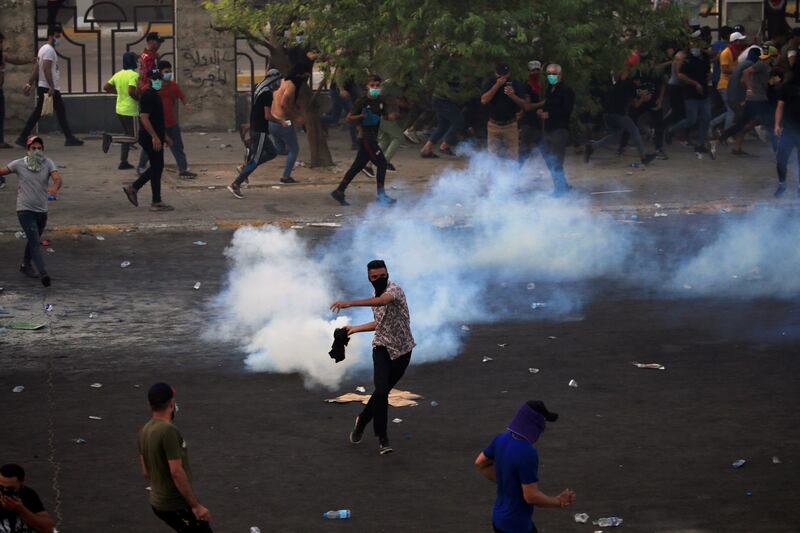It was an evening run in Baghdad that I will never forget. Our rocket warning system bleated urgently as I finished my final lap of the embassy compound. I dove into a small concrete bunker just as two rockets exploded nearby. The pressure from the explosions shook the shelter while shrapnel blasted into our thankfully solid perimeter walls. I breathed a sigh of relief at another bullet dodged.
During my three tours of duty as a senior American diplomat in Iraq, including as ambassador from 2016 to 2019, our embassy was attacked by rockets and sniper fire, and spied upon by surveillance drones. No other embassy in the world is subjected to this kind of regular assault. As ambassador, I demanded from two Iraqi prime ministers – but failed to get – concrete steps to counter these constant threats to the lives of my staff.
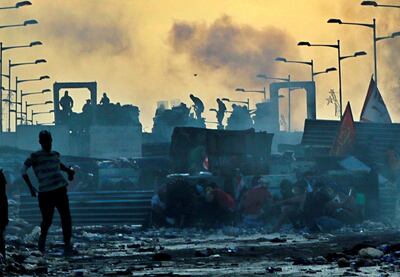
Since I left Iraq, the danger has become even more acute. Leaders of Iraq’s Iran-backed militias, including some claiming membership in the Popular Mobilisation Forces (PMF) – ostensibly part of the Iraqi government, though they continually undermine it – have declared war on the embassy and threatened to attack it with newly obtained, “precise” weapons.
This week, seven innocent Iraqis were killed by a rocket apparently aimed at US-led coalition forces near Baghdad International Airport. US Secretary of State Mike Pompeo has reportedly warned the Iraqi government the embassy might be shuttered if these attacks continue.
Iraq’s Prime Minister, Mustafa Al Kadhimi, with whom I dealt when he served as intelligence chief, seems to understand that the attacks are aimed really at weakening the Iraqi state and subordinating the elected government to a minority sectarian agenda and to Iran’s expansionist policies.
Since 1979, the Iranian regime, in its backing of Iraqi and regional militias, has adopted a policy perfectly expressed by a saying in American sports: the best defence is a good offence. Iran keeps its regional adversaries off balance by fomenting just enough chaos to make them focus on internal instability, but not enough to force them into an open armed conflict that no party wants.
It has created parallel, sectarian security and economic structures in Iraq, Lebanon, Syria and elsewhere. They operate outside the control of those governments and pursue through violence and corruption their own domestic sectarian agendas, furthering Iran’s ambitions. They are a chilling and very effective hybrid of militia and mafia.
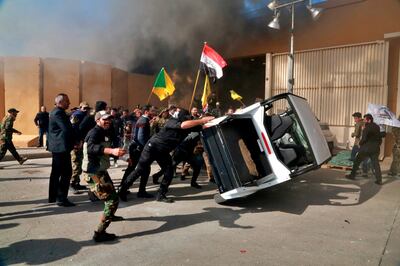
Unfortunately, Washington has contributed in its own way to the rise of tensions. The withdrawal of President Donald Trump’s administration from the Iran nuclear deal and “maximum pressure” sanctions against Iran raised the stakes. Iran’s initial “maximum resistance” response – downing a US drone, attacks on shipping in the Gulf and strikes on Saudi Arabian oil infrastructure – elicited little more than rhetoric from Washington.
The Trump administration made it clear that a substantial response would come should any American be killed. Iran and the militias were happy to oblige. The death of an American in Iraq in December 2019 provoked retaliatory US airstrikes. The subsequent attempt to storm the US embassy in Baghdad led to the targeting of Iranian Quds Force leader Qassem Suleimani.
Senior Iranian officials have been very clear that the retribution they seek for the killing of Suleimani is the gradual expulsion of the United States from the region. Iraq is where Iran sees its greatest chance of success in the short term.
In this context, targeting the US embassy is a highly risky, but potentially effective, strategy to employ against the Trump administration. The President promised voters that he would bring US troops home from the “endless wars” in Iraq and Afghanistan. Like all Americans, Mr Pompeo, an ambitious politician, does not want to see Americans killed or kidnapped in Iraq, particularly after the allegations he levelled against one of his predecessors, Hillary Clinton, after the attack on the US mission in Benghazi.
By directly targeting the embassy, Iran and its militia allies in Iraq seek to bring about the very withdrawal that Mr Pompeo has threatened. Tehran and its proxies would welcome the closure of the embassy as a major victory. In contrast, some Americans would see removing their diplomats from the crosshairs of Shia militias as a way to free Washington to target those militias directly.
Lost in all of this are the interests of Iraqis.
The mass demonstrations that started in Basra in 2018 and spread to Baghdad and southern Iraq in 2019 are a popular outcry for competent governance, much-needed services, reforming a stagnant economy, confronting corruption and controlling the militias that harass and extort ordinary citizens. A majority of the demonstrators are young and Shia and lack hope that their current fractious and corrupt political structure can provide them opportunities for a better future.
There was, at first, a strong anti-Iran tint to the protests. In Basra, young Shia protestors sacked and burned the offices of Shia militias and – to my dismay – the Iranian consulate. That sentiment permeated the protests elsewhere as well. However, the American military strikes in December and January caused many Iraqis to fear that Washington, like Tehran, only wants to control Iraq, not empower it.
So how can Prime Minister Al Kadhimi deal with the current crisis? While he hopes to address the demands of Iraqis for a better life, the threats against the U.S. embassy and the apparent American ultimatum may force him to take steps he had hoped to delay. He should focus on measures that can reduce the threat to American interests without igniting a sectarian civil war.
The government must once again restrict access (including by militias) to the most sensitive centres of government authority and the international presence – Baghdad's International (“Green”) Zone and Baghdad International Airport. While that may not prevent all attacks, it would make them more difficult.
Mr Al Kadhimi must also work with Iraqi politicians and religious figures to define the actions of the militias as criminal and as anti-Iraqi rather than anti-American. Iraqis know the criminality of the militias and their sectarian and pro-Iranian agendas, but need political empowerment to express or act on that understanding.
Ultimately, the government must remove militia rockets and heavy weapons from urban centres and areas near bases that house coalition troops. This will be fraught with peril, but the process will clearly demonstrate which units of the PMF owe their allegiance to Baghdad, and which follow Tehran.
Iraq is a proud country with a diverse population, deep history and great-but-poorly-utilised wealth. Iraqis do not want to be forced to choose between Tehran and Washington. Rather, most seek a truly independent, democratic and prosperous nation. Lest we forget, those also happen to be the original goals of the American intervention in 2003.
Douglas Silliman was US ambassador to Iraq from 2016-2019 and to Kuwait from 2014-2016. He is now president of the Arab Gulf States Institute in Washington
Explainer: One year since Iraq protests, what has changed?
